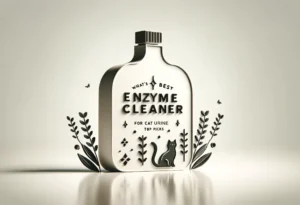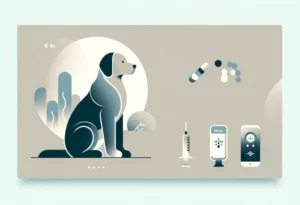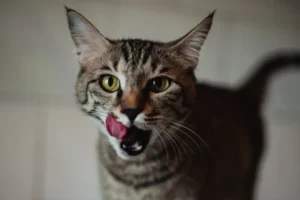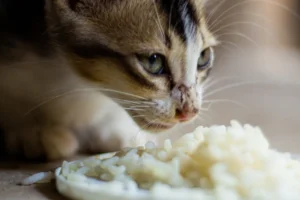Answer:
Cats throwing up after drinking milk is a common issue that many cat owners face. If you’ve ever wondered why this happens, you’re in the right place.
Common Misconceptions About Cats and Milk
Many people believe that all cats love milk, thanks to popular cartoons and stories. However, the truth is that not all cats can tolerate milk. The misconception that milk is a natural and beneficial treat for cats can lead to digestive issues like vomiting. It’s essential to understand that cats are lactose intolerant, which means their bodies lack the necessary enzyme to digest lactose, the sugar found in milk. So, while your cat may enjoy the taste of milk, it’s crucial to avoid giving them any to prevent stomach upset.
Lactose Intolerance in Cats
Cats, unlike kittens, lose their ability to digest lactose as they grow older. This loss of lactase, the enzyme responsible for breaking down lactose, can result in digestive problems like vomiting after consuming milk. Due to their evolutionary history as obligate carnivores, cats do not need milk as a source of nutrition in their diet. Offering cat-specific treats is a safer and healthier alternative to feeding your furry friend something that may cause them discomfort. If you notice your cat vomiting after milk consumption, it’s best to consult your veterinarian for further guidance on their diet and nutrition needs.
Potential Health Risks of Milk Consumption for Cats
If you’ve noticed your cat throwing up after drinking milk, it might be a sign that they are lactose intolerant. Cats, like some humans, lack the enzyme lactase needed to properly digest lactose, the sugar found in milk. This can lead to digestive issues such as vomiting, diarrhea, or an upset stomach. Milk can also be high in fat, which can be hard for some cats to digest and may contribute to vomiting episodes. It’s essential to be mindful of potential health risks that milk consumption can pose to your feline friend.
Signs Your Cat Can’t Tolerate Milk
Wondering if your cat’s upset stomach is due to milk intolerance? Look out for signs that your cat can’t tolerate milk. These can include vomiting, diarrhea, bloating, gas, or abdominal discomfort. Some cats may also show signs of lethargy or dehydration after consuming milk. If you notice these symptoms, it’s best to avoid giving your cat milk altogether. Offering water instead can help prevent further digestive issues and keep your cat hydrated. Listen to your cat’s cues to ensure their well-being.
Additional Insight : When cats were kittens, they have the ability to digest lactose from their mother’s milk. However, as they age, many cats lose this ability, leading to lactose intolerance.
Remember, every cat is unique, and some may tolerate milk better than others. It’s important to monitor your cat’s reaction and consult with your veterinarian if you have concerns about their digestive health. Prioritize your cat’s well-being by being mindful of what you feed them and observing their reactions to different foods and treats.
Safe Alternatives to Milk for Cats
If your cat throws up after drinking milk, it may be due to lactose intolerance. Cats lack the enzyme necessary to digest lactose properly, leading to upset stomachs. Instead of milk, try cat-friendly alternatives such as lactose-free milk, bone broth, or watered-down wet food as treats. These options can be tasty and easy on the stomach for your feline friend.
Tips for Introducing New Foods to Your Cat
When introducing new foods or treats to your cat, it’s essential to do so gradually to prevent any stomach upset. Start by offering small amounts and monitor their reaction. Slowly increase the portion size over a few days. Remember that each cat is unique, so be patient and observant of how they respond to new foods. Additionally, consider consulting with your veterinarian for personalized advice on your cat’s dietary needs.
List of Safe Alternatives to Milk for Cats:
– Lactose-free milk
– Bone broth
– Watered-down wet food
Remember, your cat’s health is a top priority, so always choose the best options for their well-being.
Other Possible Reasons for Vomiting in Cats
You may wonder, “Why does my cat throw up after drinking milk?” Well, besides milk, there are other possible reasons your feline friend might be experiencing episodes of vomiting. It could be due to hairballs, a sudden change in diet, eating too fast, or even underlying health issues like kidney disease or intestinal parasites. Keep an eye on your cat’s behavior and consult with your veterinarian if you notice frequent vomiting episodes to rule out any serious health concerns.
Interesting Facts About Cats and Their Digestive Systems
Did you know that cats lack the enzyme lactase, which is needed to digest lactose found in milk properly? This is why many cats are lactose intolerant and may experience digestive issues like vomiting after consuming dairy products. Cats also have a relatively short digestive tract, which means that they are obligate carnivores and require a diet high in animal-based protein to thrive. By understanding these unique aspects of your cat’s digestive system, you can better cater to their specific nutritional needs and avoid unnecessary tummy troubles.
- Bonus Tip: To prevent your cat from throwing up after drinking milk, consider offering lactose-free alternatives or stick to water and cat-friendly treats as a safer option for their delicate digestive system.
Alex, a passionate animal lover, has experience in training and understanding animal behavior. As a proud pet parent to two dogs and three cats, he founded AnimalReport.net to share insights from animal experts and expand his knowledge of the animal kingdom.









